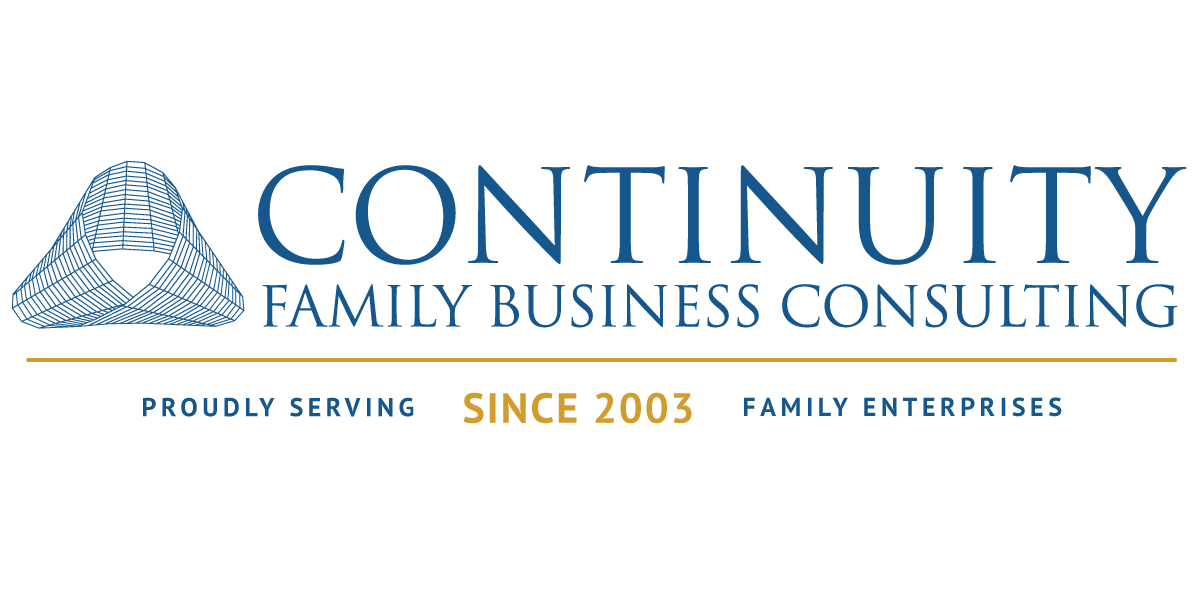When External Factors Increase Internal Pressures
All businesses, both family- and non-family-owned, are being impacted by the coronavirus pandemic. How they respond provides important insight into what makes family businesses different.
Family businesses are unique, with many advantages that stand them in good stead during times of crisis. While there are unique strengths for family-owned firms working in a world changed by COVID-19, family businesses also need to be aware of unique risks they face. While some families will clearly suffer personal and financial losses due to the pandemic, the good news is that for many family businesses the challenges and invitations offered by the pandemic can allow them to emerge stronger than ever, both as families and as enterprises.
Here are three ways family businesses are different that will matter right now:
-
Loyalty
Family business owners are notoriously loyal to their employees – especially long-term employees. For example, when Malden Mills burned to the ground just before Christmas of 1995, Aaron Feuerstein, the owner, kept everyone employed and rebuilt – at great personal cost.*
This commitment to one another is often reciprocated. In the case of Malden Mills it is interesting to note that during first year of operation after rebuilding productivity among employees rose 40%. When economic challenges exist, long-term employees of family businesses are more likely to work with family owners that have gone above and beyond for them in the past.
Examples of loyalty like this are commonplace in family business, and they demonstrate how family business leadership with “the long view” in mind can unify family owners and employees to sacrifice and stand together through a crisis. Commitment to the livelihoods of the employees who work for them is a hallmark most family businesses, as is the dedication of those employees to each other and the family business.
The crisis can make the ties among stakeholders stronger than ever by giving the stakeholders an opportunity to make their commitment clear. When the pressure is on, the act of putting values into action can have transformative power. We expect to see many examples of the same gestures of solidarity during this crisis.
-
Persistence—and Pressures of—Identity
When a family business faces financial uncertainty and market challenges, family stakeholders are more likely to dig deep to keep their businesses alive. They will re-invest family capital to keep it afloat through difficult times and roll up their sleeves to work harder. They don’t look for another job or another investment, but rather stay the course.
This is because it’s more than a business and more than an investment to the family owner. The family stakeholder’s identity is often tied to their business – their name is “on the door” – either literally or metaphorically. Their commitment to their enterprise may span generations – including future generations. Keeping the business going is much more than a financial decision. It is one of honor, purpose and identity and will help to get many family businesses through this difficult time.
-
Predisposition to Conflict
Here is where family businesses might struggle more than many non-family-owned firms. Because the business is often so central to the family in its emotional and financial impact, and because family members play so many varied roles in the enterprise, stakeholders often have conflicting opinions, goals, and histories that drive their behavior when it comes to the business.
Normally, at least in well-functioning family businesses, stakeholders have reached a stasis in which they can manage their differences so the business can flourish. But when a shock to this often-fragile system comes, as it has with the COVID-19 pandemic, it can disrupt the system and destabilize the status quo. While this can lead to putting aside disagreements and increasing focus and alignment on the emergencies at hand, it can also lead to family business conflict, with tempers flaring and walls going up that stifles decision-making at a time when timely responses are critical.
It is important for enterprising families to remember that COVID-19, and the economic challenges it has caused, are what we call “external factors.” An external factor is nothing that any stakeholder can influence or control, yet it stresses the system. While stakeholders can control how they react to it, no one has experienced this external factor before, and nobody in the family is at fault. Everyone is trying their best in uncharted territory.
It is important for family business stakeholders to see these external factors for what they are: outside threats that will naturally make tensions rise and cause very normal human responses of fear or anger. Trying to stay focused on what is known and unknown, on what’s working and not working, can help families avoid unproductive conversations about what or who is “wrong.”
An external factor, such as coronavirus, will naturally upset individuals and the ecosystem of the family business. There are enormous perceived threats coming from this crisis: personal and family health, business issues, and global economic issues. These existential fears naturally trigger the fight/flight/freeze mechanism, a natural human response to perceived threats that can make people angry, fearful, reactive, and lead to conflict.
Being aware of these automatic responses to threatening situations can help families focus on what is actually within their control. This will be key in working together to navigate the ever-evolving circumstances created by the pandemic. It will help families be clear about what decisions must be made and avoid further disruption or damage by managing conflict.
What to Do Now
While there are clear threats that come from the coronavirus pandemic, there are also opportunities that can arise out of such crises. We’d like to suggest how family businesses can approach the uncertainty in a way that keeps them strong and effective during this challenging time.
Build Your Family Factor, or Family Resilience
Use this special time to seek out specific opportunities to build your Family Factor. This is a great time to talk about the things that make you “family” and how the values and hard work of prior generations has gotten you to where you are. You may be surprised at how rewarding an intergenerational conversation to review your shared history can be.
Think about your future as a family. What values and memories do you want future generations to take from how you are dealing with this crisis? Now that many of us have time at home with our families for the first time in a long while, make that time productive. Even watching movies together can be an opportunity to discuss family values and to get to know each other better.
Find Opportunity in Challenging Times
While no one would argue that there is anything positive about the pandemic, family businesses are uniquely prepared for this challenge. There is an opportunity here for those who choose to approach the crisis with creativity and the commitment to bring family closer while leaning on the values that will keep your family enterprise strong.
The pandemic forces everyone out of the status quo, inviting stakeholders to develop innovative solutions to fully respond to pressing needs of today. If family businesses focus on what they know, who they are, and where they want to be, this crisis may, in fact, be a transformative opportunity.
*Read more about the Malden Mills story.
Learn more about the importance of Family Factor in this blog post or our book.
We’re working remotely with client families and are here if you need help. Contact us if there is a topic you’d like to see us cover in our blog or request a free consult.
About Us
Continuity Family Business Consulting is a leading advisory firm for enterprising families. Using a full suite of service capabilities, we help families prevent and manage the single greatest threat to family and business continuity: conflict. It is through this lens that we advise our clients and build customized strategies for succession planning, corporate governance, family governance, and more. We help families improve decision making, maximize potential and achieve continuity. To inquire, visit https://continuityfbc.com/contact-us or call (617) 500-3110.


